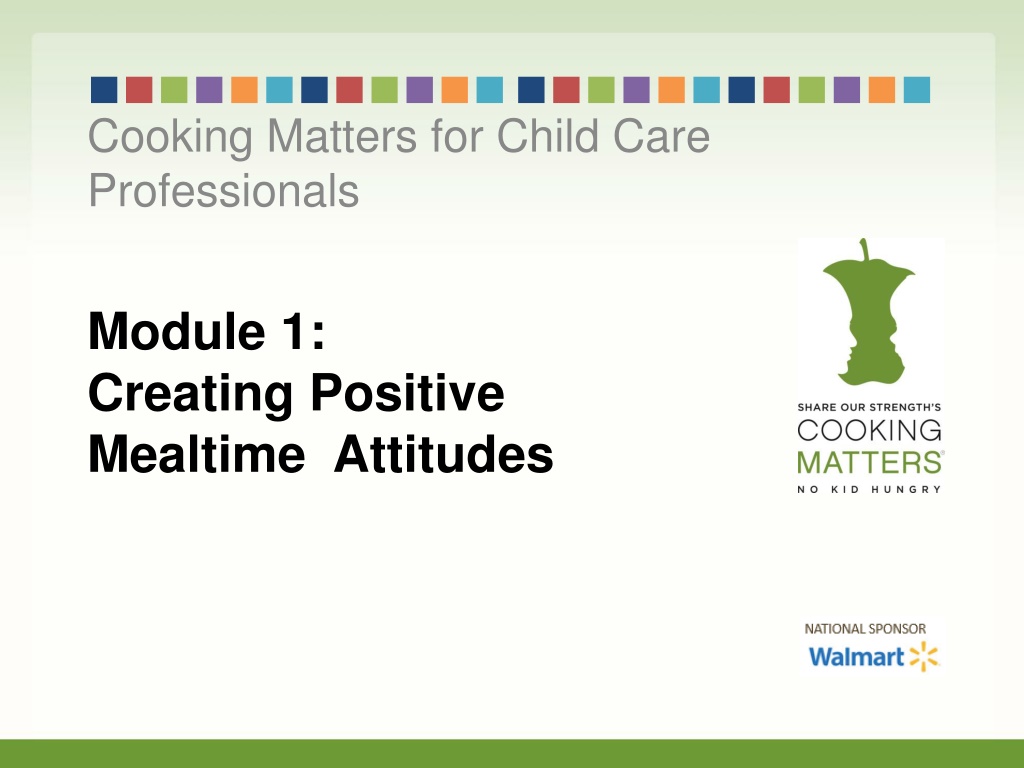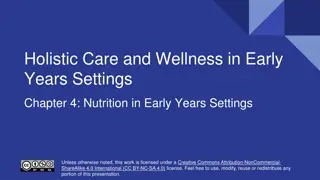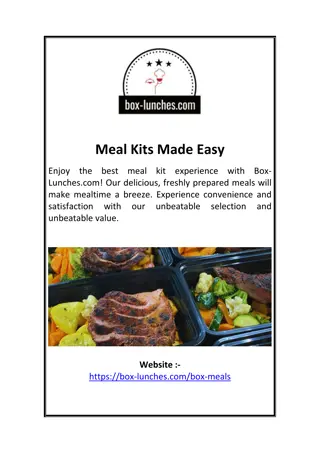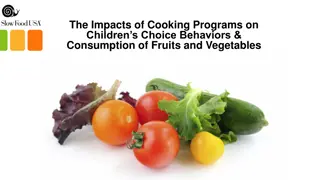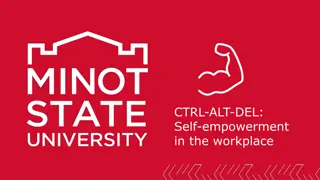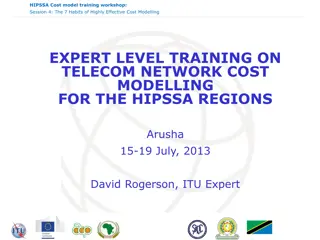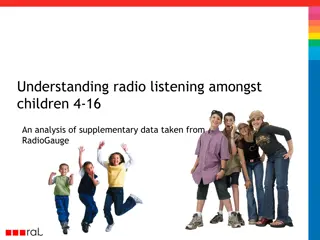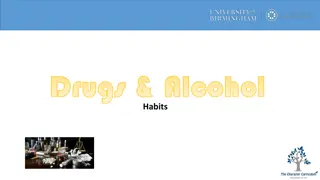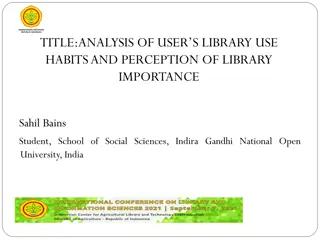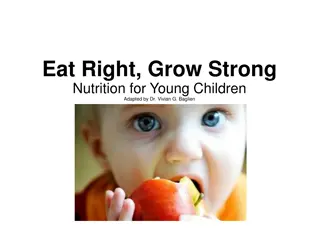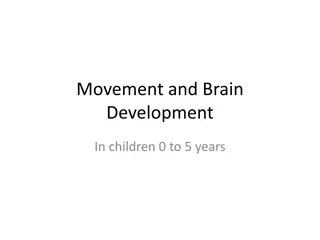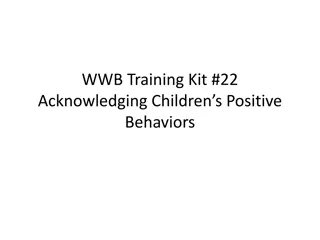Building Positive Mealtime Habits for Children
Cultivating positive mealtime attitudes and rituals is crucial for children’s development. Establishing routines and engaging in mealtime activities can foster healthy eating habits, social skills, and responsibility. Children learn from observing adults and imitate behaviors, making it essential for caregivers and child care professionals to model healthy eating practices. By creating a supportive mealtime environment, children can learn to appreciate new foods, make healthy choices, and understand the value of eating together.
Download Presentation

Please find below an Image/Link to download the presentation.
The content on the website is provided AS IS for your information and personal use only. It may not be sold, licensed, or shared on other websites without obtaining consent from the author.If you encounter any issues during the download, it is possible that the publisher has removed the file from their server.
You are allowed to download the files provided on this website for personal or commercial use, subject to the condition that they are used lawfully. All files are the property of their respective owners.
The content on the website is provided AS IS for your information and personal use only. It may not be sold, licensed, or shared on other websites without obtaining consent from the author.
E N D
Presentation Transcript
Cooking Matters for Child Care Professionals Module 1: Creating Positive Mealtime Attitudes
Mealtime Rituals What are your Child Care Center rituals around mealtime? What are your personal mealtime rituals? For young children, rituals are comforting and provide stability. They reinforce a bond or sense of identity and belonging to a particular group.
Rituals vs. Routine Routines can contribute to positive behaviors Rituals create emotional value Are meaningful activities Require carful focus and presence of mind Include Walks Prayer Mediation Performed without conscious thinking Does not require focus and presence of mind Include Going to work Preparing for bedtime
Ritual Brainstorm Activity Setting the table Mealtime discussion Cleanup
How can positive attitudes lead to healthy food habits and positive meal time behaviors? Kids learn: to appreciate new foods to make healthy choices and figure out how much to eat by observing others. to eat meals and snacks at set times, rather than grazing throughout the day. cooperation and responsibility by contributing to mealtimes tasks. the value of eating together, and the conversation helps them develop social skills and good manners.
What Do Children Learn About Eating From You? What, when, and where to eat and drink How to prepare food How to serve food Mealtime behavior Attitudes about food
What Do Children Learn About Eating From You? If this staff member was eating a fast food meal out of a bag instead of the school lunch . what message would that send to the kids?
Children Imitate Others Children imitate: Parents Caregivers Siblings Relatives Other children Celebrities and cartoon heroes Model the behaviors and attitudes you want children to follow. They are watching you!
Feeding Kids Well Takes Teamwork! The children in this classroom are learning that fruits and vegetables make great snacks. Every day this week, the afternoon snack has been milk and graham crackers. What message are the kids getting?
Want Kids to Reach for Healthy Foods? Make sure healthy foods are in reach! Let kids learn by choosing for themselves which foods to take and how much to eat Let them help with food preparation in age-appropriate ways
Activity Fruit and Vegetable Mystery Bag Place one whole fruit or veggie into a brown paper bag. Allow the kids to place their hands in the bag one at a time and ask them to describe what they are feeling. Once the mystery is solved, ask the kids if they have tried this food before, did they like it, would they like to try it? Have the kids taste test the food. For full instructions see page 2 of Exploring Foods Together.
Goal Setting Complete the worksheet on page 9 Discuss in small groups Mealtime rituals Modeling healthy mealtime behaviors
